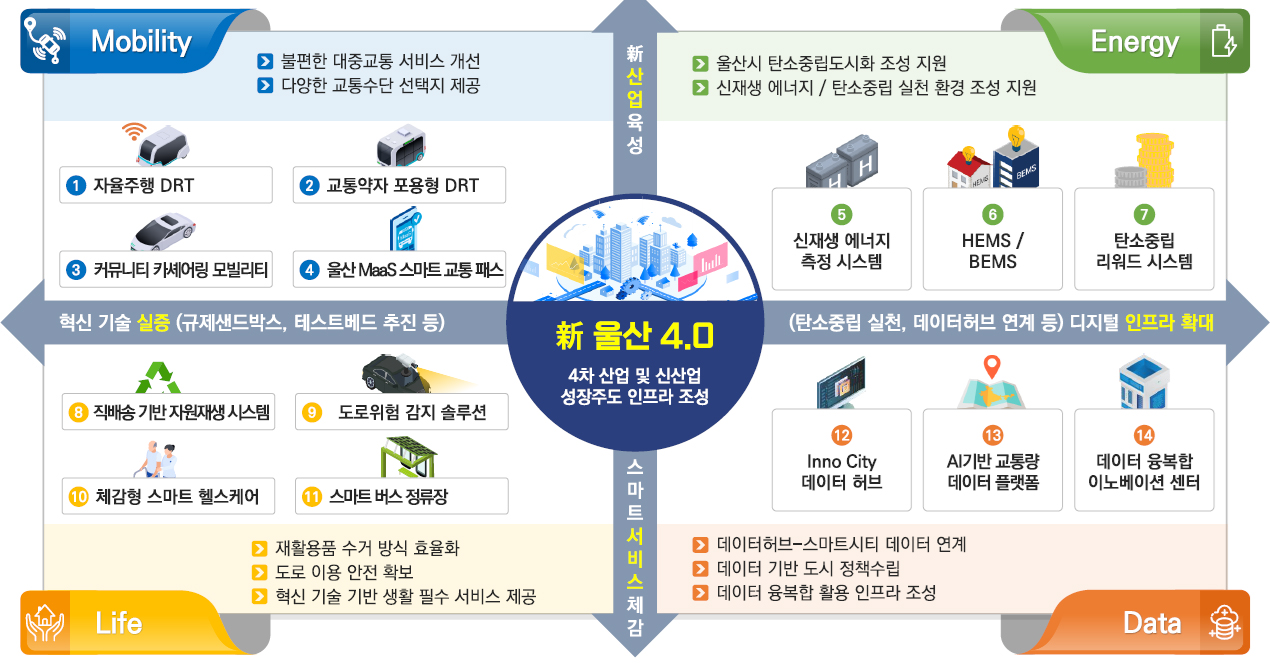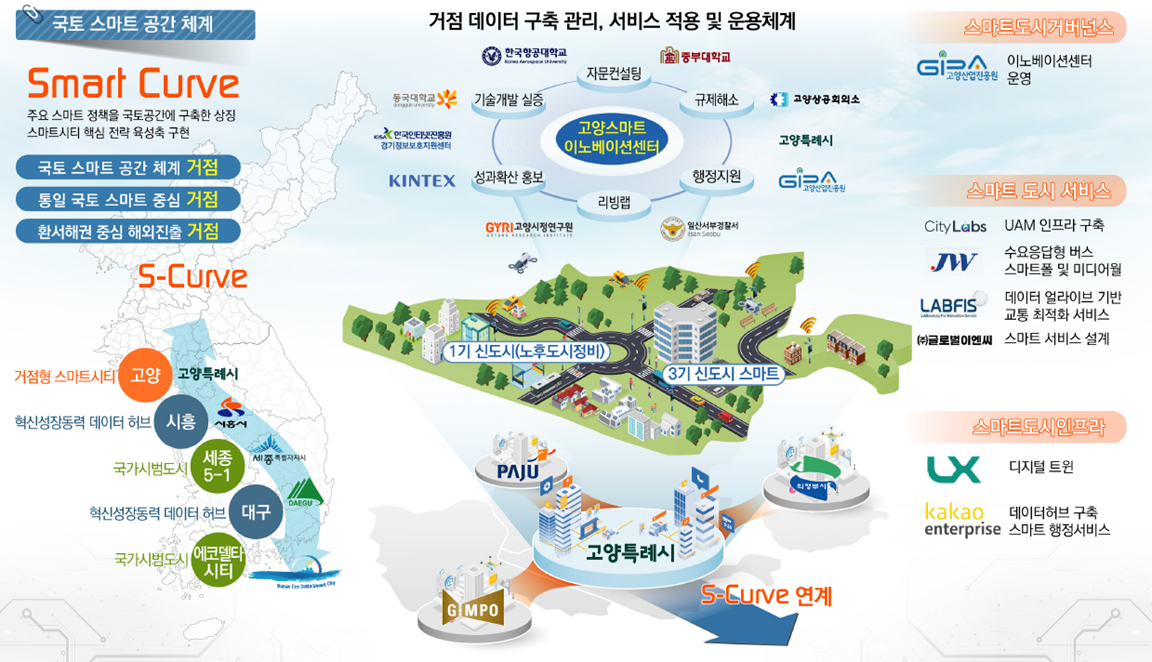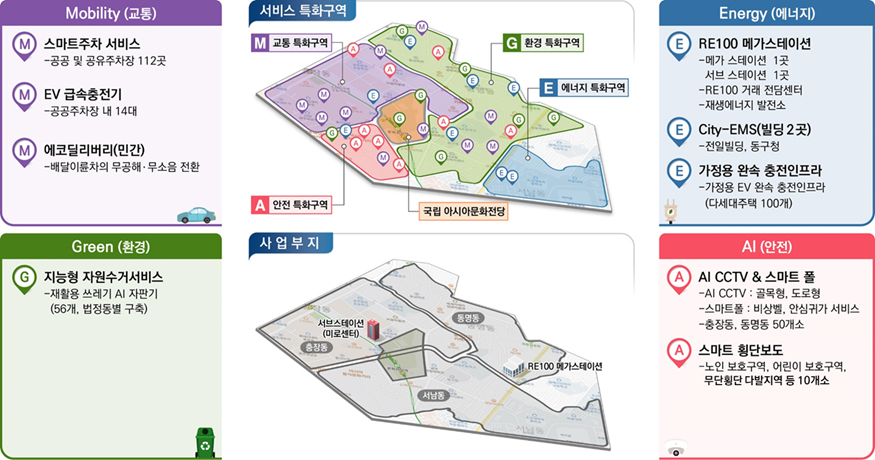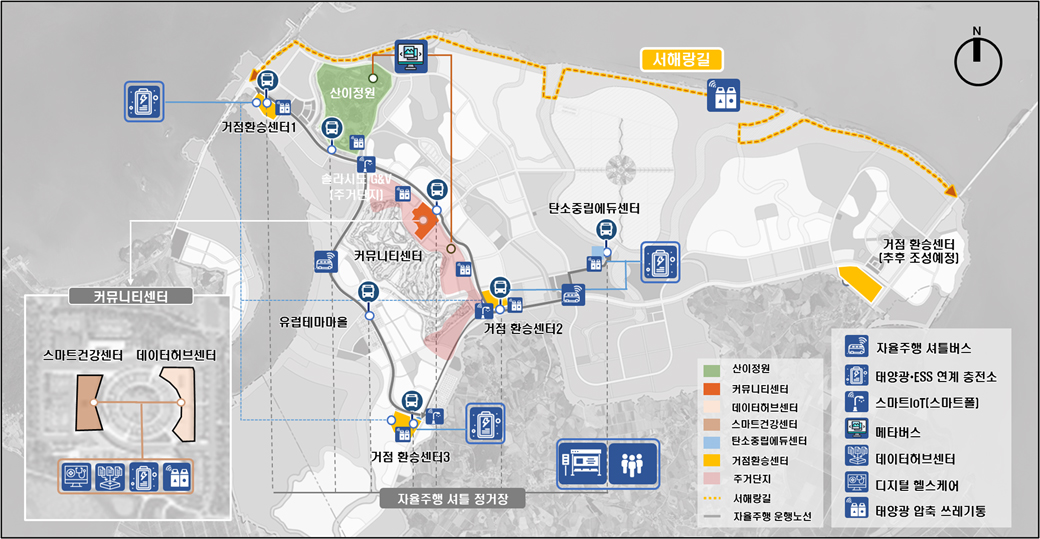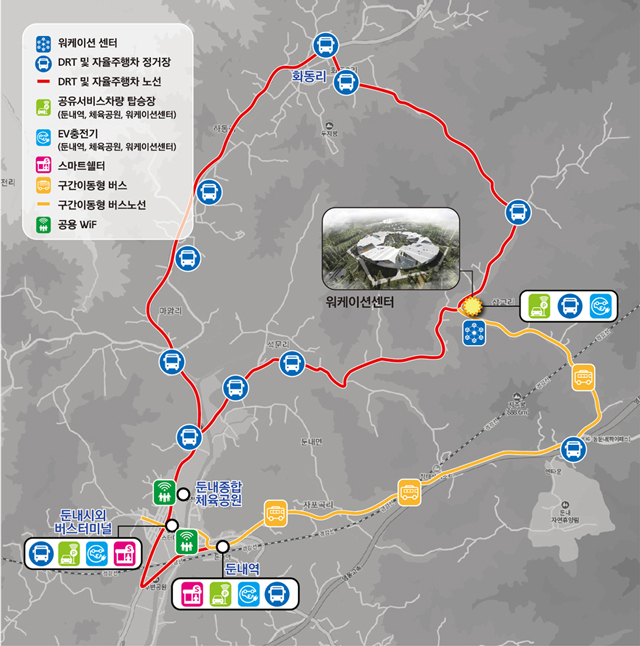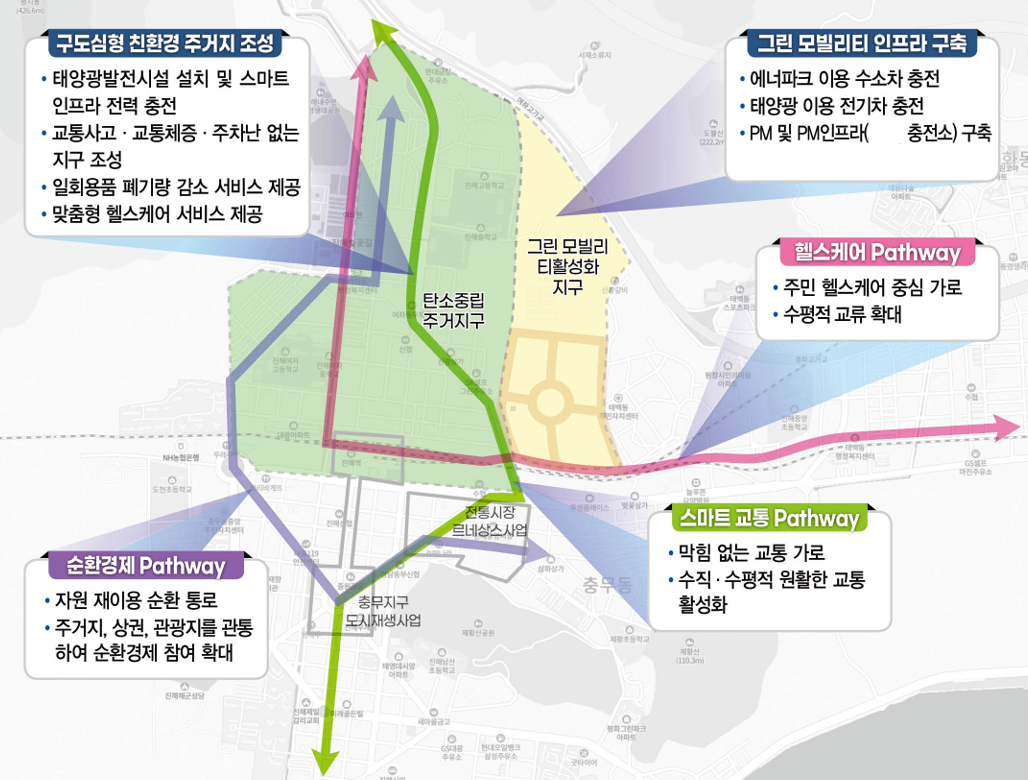Creating a base-type smart city
The base-type smart city is a project to create a smart base that can enhance regional competitiveness and lead the spread of smart cities, and will be created at a scale of 3 billion won (400 government: 200 local) for 200 years for each city.
A total of 23 local governments applied for the 10rd base smart city creation project, showing a 5:1 competition rate, and Ulsan Metropolitan City and Goyang-si, Gyeonggi-do were selected.
New Ulsan 4 Inno City construction project for the leap forward of the 4.0th industry
- (Mobility) Improving inconvenient public transportation services and providing various transportation options
- (Energy) Support for the creation of carbon neutralization in Ulsan and support for the creation of a new and renewable energy-carbon neutral practice environment
- (Life) Efficient recycling collection method, securing road use safety, providing essential services based on innovative technology
- (Data) data hub-smart city data connection, data-based city policy establishment and utilization infrastructure creation
Data Hub & Digital Twin-based S-Curve Smart City Construction
- (Governance) Establishment of Smart City Innovation Center
- (Service) UAM infrastructure construction, demand response bus, smart pole and media wall, data-alive-based traffic optimization service
- (Infrastructure) digital twin, data hub establishment, smart administration service provision
The “Regional Base Smart City Creation Project” creates a smart city base by providing up to 5 billion won in national funds over three years by matching national and local funds (5:3) to improve regional competitiveness and spread smart cities.
※ 2022 project results: 8 local governments open to contest, final 3 local governments promote
RE100 Creating an energy-independent smart city for carbon neutrality
- Reduction of carbon emissions through renewable energy power generation facilities and brokerage transactions
- Energy saving through energy efficient use of aging buildings and reduction of greenhouse gases
- Fostering the smart energy industry to realize the government's 2050 carbon neutral policy, Gwangju's 2045 energy self-sufficient city and artificial intelligence central city policy
Eco-friendly, renewable energy-based new urban tourism and leisure smart city creation
- Establishment of a regional economic foundation centered on smart service and balanced national development by presenting a new urban standard model based on corporate urban planning
- Establish an eco-friendly mobility (electric vehicle) foundation by distributing electric charging facilities using solar power generation and ESS
- Solasi also implements major tourist destinations as a metaverse and provides content applied with game elements
Creation of a smart work city for the revitalization of a city with a depopulated local population
- Fostering smart city projects tailored to rural areas and spreading the construction of a working city model by presenting a role model for overcoming the crisis in response to the local extinction crisis
- Expansion of convenient services such as location and mobility reservation/payment, provision of location service reservation service, introduction of local tourist destinations and program linkage
- Strengthening regional competitiveness by providing low charging rates by linking the EV charging infrastructure business with the solar power installation business




